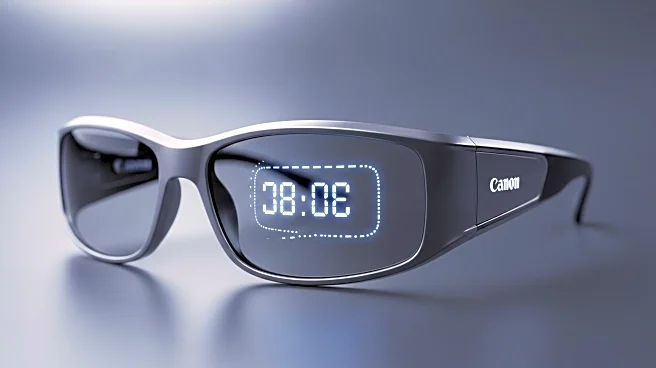What's Happening?
The smart glasses market is experiencing significant growth, driven by the increasing demand for AI-enabled smart glasses. According to Counterpoint Research, global shipments of smart glasses rose by 110% year-over-year in the first half of 2025, with AI smart glasses accounting for 78% of these shipments. The AI segment of the market grew by 250% year-over-year, showcasing the popularity of advanced features such as image and object recognition, live translation, and device-based payment options. New entrants like Xiaomi and TCL-RayNeo are contributing to this growth, with Xiaomi's AI glasses quickly becoming a top-selling model. Meta's Ray-Ban Meta Smart Glasses have also seen strong demand, with shipments increasing over 200% year-over-year.
Why It's Important?
The rise of AI smart glasses represents a significant shift in consumer technology, offering enhanced functionalities that could transform everyday interactions and business operations. These devices provide users with advanced capabilities, such as networking assistance and real-time information access, which could improve productivity and connectivity. The growth in this market also indicates a broader acceptance of wearable technology, potentially leading to increased investment and innovation in the sector. However, the integration of AI features raises privacy concerns, as these glasses can capture and process personal data. Companies and regulators may need to address these issues to ensure consumer trust and compliance with privacy standards.
What's Next?
The smart glasses market is expected to continue its rapid growth, with new models from major players like Meta and Alibaba anticipated in the second half of the year. These releases could further boost market demand and expand the range of available features. Additionally, the development of cellular-enabled smart glasses could lead to new service bundling opportunities for telecom providers, enhancing connectivity and user experience. As China pushes forward with self-developed AI glasses, the country may become a key player in shaping the future of smart glasses technology, potentially influencing global trends and business models.
Beyond the Headlines
The expansion of the smart glasses market could have long-term implications for various industries, including retail, healthcare, and education. The ability to integrate AI-driven functionalities into everyday eyewear could lead to new applications in augmented reality, remote assistance, and personalized learning. Furthermore, the involvement of chipset makers like Qualcomm and Allwinner Technology suggests ongoing advancements in hardware capabilities, which could lower costs and increase accessibility. As the market evolves, ethical considerations around data usage and surveillance will likely become more prominent, necessitating careful regulation and consumer education.










